Hyundai IONIQ 5 vs VW ID.4 – erot ja hinnat vertailussa
Vertaa tehoa (650 hv vs 340 hv), tavaratilaa ja hintaa (46800 € vs 42000 € ) yhdellä silmäyksellä. Kumpi auto on sinulle parempi valinta, Hyundai IONIQ 5 vai VW ID.4?
Kustannukset ja kulutus
Taloudellisuudessa on mielenkiintoisia eroja näiden kahden mallin välillä.
VW ID.4 on hinnassa jonkin verran edullisempi – sen lähtöhinta on 42000 € , kun taas Hyundai IONIQ 5 maksaa 46800 € . Ero on noin 4757 €.
Sähkönkulutus on lähes sama – 15.60 kWh /100 km.
Sähköisessä toimintamatkassa Hyundai IONIQ 5 suoriutuu vähäinen paremmin: se yltää jopa 570 km:een, noin 1 km enemmän kuin VW ID.4.
Moottori ja suorituskyky
Teho, vääntömomentti ja kiihtyvyys ovat autoharrastajien klassisia mittareita – ja erot tulevat tässä hyvin esiin.
Moottoritehossa Hyundai IONIQ 5 on merkittävä etulyöntiasemassa – 650 hv verrattuna 340 hv:een. Ero on noin 310 hv hv.
Kiihdytyksessä 0–100 km/h Hyundai IONIQ 5 on ratkaiseva nopeampi – se saavuttaa 100 km/h ajassa 3.50 s, kun taas VW ID.4 tarvitsee 5.40 s. Ero on noin 1.90 s sekuntia.
Huippunopeudessa Hyundai IONIQ 5 on huomattava edellä – se yltää 260 km/h:een, kun taas VW ID.4 saavuttaa 180 km/h. Ero on noin 80 km/h.
Myös vääntömomentissa näkyy ero: Hyundai IONIQ 5 vetää vähän voimakkaammin, 770 Nm verrattuna 679 Nm:een. Eroa on noin 91 Nm.
Tila ja käytännöllisyys
Sisätilat, tavaratila ja kantavuus ratkaisevat auton arjen käytettävyyden. Mukavuus ja joustavuus ovat avainasemassa.
Molemmissa autoissa on tilaa 5 henkilölle.
Omapainossa Hyundai IONIQ 5 on kevyt kevyempi – 1955 kg verrattuna 1975 kg:een. Painoero on noin 20 kg.
Tavaratilan koossa VW ID.4 tarjoaa vähäinen enemmän – 543 L verrattuna 520 L:een. Ero on noin 23 L.
Maksimikantavuudessa Hyundai IONIQ 5 pärjää vähäinen paremmin – jopa 1580 L, noin 5 L enemmän kuin VW ID.4.
Kantavuudessa VW ID.4 on kevyt parempi – 551 kg verrattuna 530 kg:een. Ero on noin 21 kg.
Kuka voittaa datavertailun?
Hyundai IONIQ 5 hallitsee vertailua objektiivisessa datavertailussa.
Tämä arvio kertoo vain, kumpi malli kerää enemmän pisteitä paperilla – ei kumpi näistä kahdesta autosta tuntuu sinulle oikealta.
Kustannukset ja kulutus
Näytä yksityiskohtainen analyysi
Moottori ja suorituskyky
Näytä yksityiskohtainen analyysi
Mitat ja kori
Näytä yksityiskohtainen analyysi
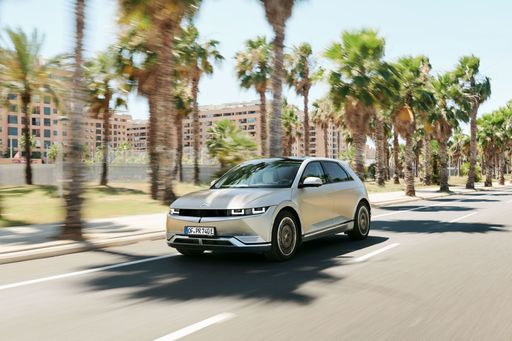
Hyundai IONIQ 5
Hyundai IONIQ 5
Hyundai Ioniq 5 tuntuu tulevaisuudenautolta jo pysäköintiruudussa: sen kantikas, retrofuturistinen muotoilu yhdistyy avaraan sisätilaan, mikä tekee arjen ajamisesta tyylikästä ja käytännöllistä. Sähköautoilu Ioniqissa on vaivatonta ja jopa vähän hauskaa — lataaminen, ajettavuus ja tavaratilan joustavuus on mietitty niin että auto sopii sekä työmatkoihin että viikonlopun seikkailuihin.
Tiedot
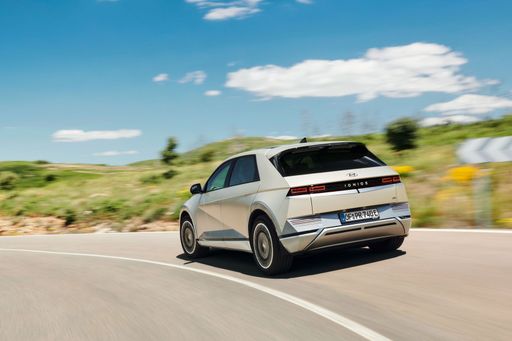
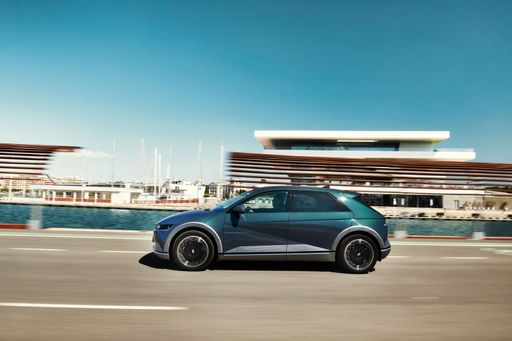
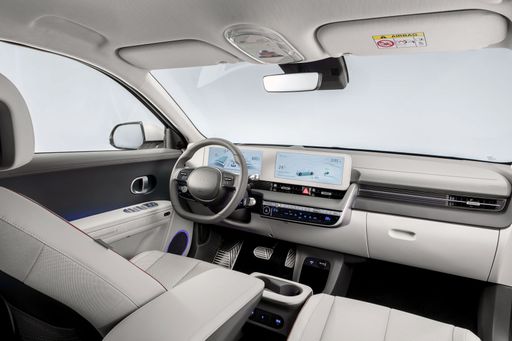
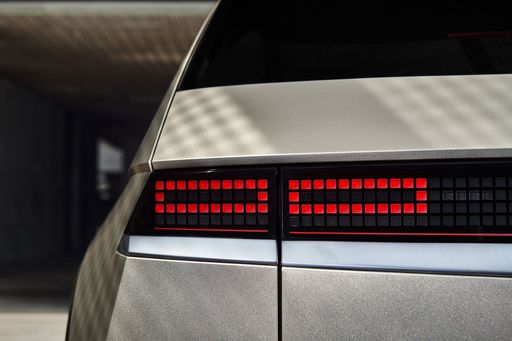
VW ID.4
Volkswagen ID.4 on hillitty ja käytännöllinen sähköauto, joka ei yritä olla urheilija vaan arjen luotettava kumppani. Avarat ja käyttäjäystävälliset sisätilat sekä vaivaton ajettavuus tekevät siitä helpoksi valinnan sähköiseen elämään ilman turhaa dramatiikkaa.
Tiedot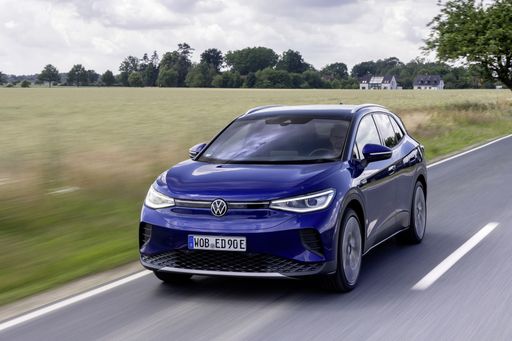
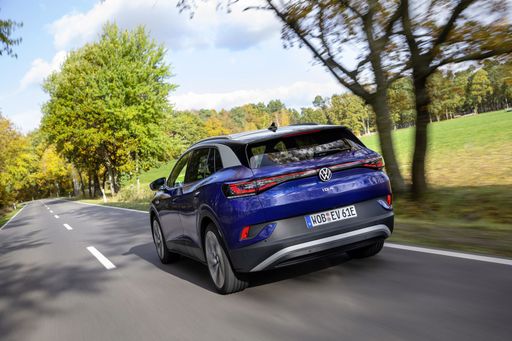
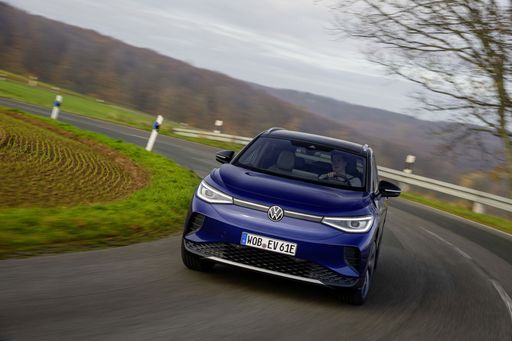
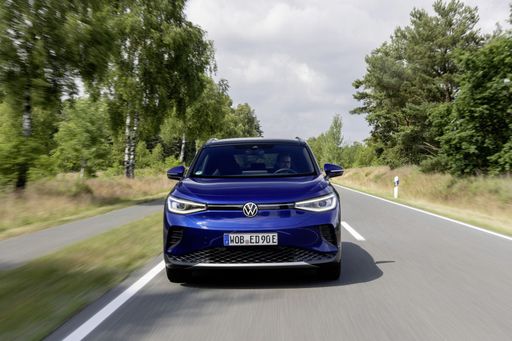
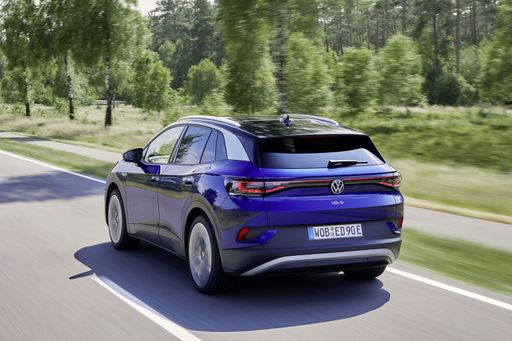

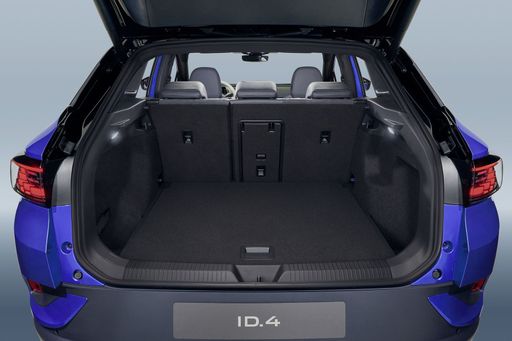
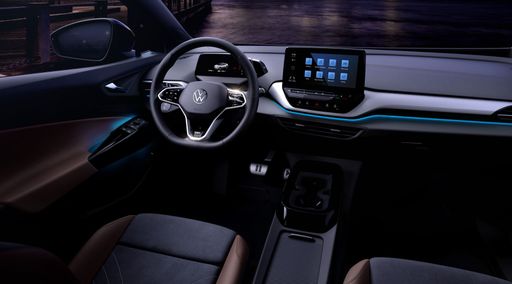
Kustannukset ja kulutus |
|
|---|---|
|
Hinta
46800 - 78000 €
|
Hinta
42000 - 57400 €
|
|
Kulutus L/100km
-
|
Kulutus L/100km
-
|
|
Kulutus kWh/100km
15.6 - 21.2 kWh
|
Kulutus kWh/100km
15.6 - 17 kWh
|
|
Sähköinen toimintasäde
440 - 570 km
|
Sähköinen toimintasäde
356 - 569 km
|
|
Akun kapasiteetti
63 - 84 kWh
|
Akun kapasiteetti
52 - 77 kWh
|
|
CO2
0 g/km
|
CO2
0 g/km
|
|
Polttoainesäiliön tilavuus
-
|
Polttoainesäiliön tilavuus
-
|
Mitat ja kori |
|
|---|---|
|
Kori
SUV
|
Kori
SUV
|
|
Istuimet
5
|
Istuimet
5
|
|
Ovet
5
|
Ovet
5
|
|
Omamassa
1955 - 2275 kg
|
Omamassa
1975 - 2248 kg
|
|
Tavaratila
480 - 520 L
|
Tavaratila
543 L
|
|
Pituus
4655 - 4715 mm
|
Pituus
4582 - 4584 mm
|
|
Leveys
1890 - 1940 mm
|
Leveys
1852 mm
|
|
Korkeus
1585 - 1605 mm
|
Korkeus
1619 - 1634 mm
|
|
Maksimi tavaratila
1540 - 1580 L
|
Maksimi tavaratila
1575 L
|
|
Kantavuus
385 - 530 kg
|
Kantavuus
515 - 551 kg
|
Moottori ja suorituskyky |
|
|---|---|
|
Moottorityyppi
Sähkö
|
Moottorityyppi
Sähkö
|
|
Vaihteisto
Automaatti
|
Vaihteisto
Automaatti
|
|
Vaihteiston lisätiedot
Alennusvaihteisto
|
Vaihteiston lisätiedot
Alennusvaihteisto
|
|
Vetotapa
Takaveto, Neliveto
|
Vetotapa
Takaveto, Neliveto
|
|
Teho hv
170 - 650 hv
|
Teho hv
170 - 340 hv
|
|
Kiihtyvyys 0-100 km/h
3.5 - 8.5 s
|
Kiihtyvyys 0-100 km/h
5.4 - 9 s
|
|
Huippunopeus
185 - 260 km/h
|
Huippunopeus
160 - 180 km/h
|
|
Vääntömomentti
350 - 770 Nm
|
Vääntömomentti
310 - 679 Nm
|
|
Sylinterien lukumäärä
-
|
Sylinterien lukumäärä
-
|
|
Teho kW
125 - 478 kW
|
Teho kW
125 - 250 kW
|
|
Iskutilavuus
-
|
Iskutilavuus
-
|
Yleistä |
|
|---|---|
|
Mallivuosi
2024 - 2025
|
Mallivuosi
2023 - 2025
|
|
CO2-tehokkuusluokka
A
|
CO2-tehokkuusluokka
A
|
|
Merkki
Hyundai
|
Merkki
VW
|
Millaisia voimalinjoja Hyundai IONIQ 5:ssa on saatavilla?
Hyundai IONIQ 5 on saatavilla Takaveto tai Neliveto-vetotavalla.
